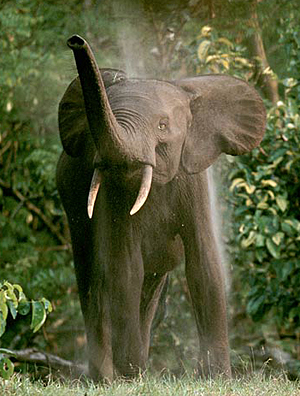

- Rozovsky wins prestigious NSF Early Career Award
- UD students meet alumni, experience 'closing bell' at NYSE
- Newark Police seek assistance in identifying suspects in robbery
- Rivlin says bipartisan budget action, stronger budget rules key to reversing debt
- Stink bugs shouldn't pose problem until late summer
- Gao to honor Placido Domingo in Washington performance
- Adopt-A-Highway project keeps Lewes road clean
- WVUD's Radiothon fundraiser runs April 1-10
- W.D. Snodgrass Symposium to honor Pulitzer winner
- New guide helps cancer patients manage symptoms
- UD in the News, March 25, 2011
- For the Record, March 25, 2011
- Public opinion expert discusses world views of U.S. in Global Agenda series
- Congressional delegation, dean laud Center for Community Research and Service program
- Center for Political Communication sets symposium on politics, entertainment
- Students work to raise funds, awareness of domestic violence
- Equestrian team wins regional championship in Western riding
- Markell, Harker stress importance of agriculture to Delaware's economy
- Carol A. Ammon MBA Case Competition winners announced
- Prof presents blood-clotting studies at Gordon Research Conference
- Sexual Assault Awareness Month events, programs announced
- Stay connected with Sea Grant, CEOE e-newsletter
- A message to UD regarding the tragedy in Japan
- More News >>
- March 31-May 14: REP stages Neil Simon's 'The Good Doctor'
- April 2: Newark plans annual 'wine and dine'
- April 5: Expert perspective on U.S. health care
- April 5: Comedian Ace Guillen to visit Scrounge
- April 6, May 4: School of Nursing sponsors research lecture series
- April 6-May 4: Confucius Institute presents Chinese Film Series on Wednesdays
- April 6: IPCC's Pachauri to discuss sustainable development in DENIN Dialogue Series
- April 7: 'WVUDstock' radiothon concert announced
- April 8: English Language Institute presents 'Arts in Translation'
- April 9: Green and Healthy Living Expo planned at The Bob
- April 9: Center for Political Communication to host Onion editor
- April 10: Alumni Easter Egg-stravaganza planned
- April 11: CDS session to focus on visual assistive technologies
- April 12: T.J. Stiles to speak at UDLA annual dinner
- April 15, 16: Annual UD push lawnmower tune-up scheduled
- April 15, 16: Master Players series presents iMusic 4, China Magpie
- April 15, 16: Delaware Symphony, UD chorus to perform Mahler work
- April 18: Former NFL Coach Bill Cowher featured in UD Speaks
- April 21-24: Sesame Street Live brings Elmo and friends to The Bob
- April 30: Save the date for Ag Day 2011 at UD
- April 30: Symposium to consider 'Frontiers at the Chemistry-Biology Interface'
- April 30-May 1: Relay for Life set at Delaware Field House
- May 4: Delaware Membrane Protein Symposium announced
- May 5: Northwestern University's Leon Keer to deliver Kerr lecture
- May 7: Women's volleyball team to host second annual Spring Fling
- Through May 3: SPPA announces speakers for 10th annual lecture series
- Through May 4: Global Agenda sees U.S. through others' eyes; World Bank president to speak
- Through May 4: 'Research on Race, Ethnicity, Culture' topic of series
- Through May 9: Black American Studies announces lecture series
- Through May 11: 'Challenges in Jewish Culture' lecture series announced
- Through May 11: Area Studies research featured in speaker series
- Through June 5: 'Andy Warhol: Behind the Camera' on view in Old College Gallery
- Through July 15: 'Bodyscapes' on view at Mechanical Hall Gallery
- More What's Happening >>
- UD calendar >>
- Middle States evaluation team on campus April 5
- Phipps named HR Liaison of the Quarter
- Senior wins iPad for participating in assessment study
- April 19: Procurement Services schedules information sessions
- UD Bookstore announces spring break hours
- HealthyU Wellness Program encourages employees to 'Step into Spring'
- April 8-29: Faculty roundtable series considers student engagement
- GRE is changing; learn more at April 15 info session
- April 30: UD Evening with Blue Rocks set for employees
- Morris Library to be open 24/7 during final exams
- More Campus FYI >>
9:39 a.m., Sept. 24, 2009----Stephen O'Brien, chief of the Laboratory of Genomic Diversity at the National Cancer Institute, will provide a fascinating look at the evolutionary history of mammals in “21st-Century Origins: Retracing Genomic Natural History Across Mammalian Radiations” on Friday, Oct. 2, from 4-5 p.m. in 101 Brown Laboratory.
The presentation, which is free and open to the public, begins the fall series of the Year of Darwin Celebration, which launched last May at UD in honor of the 200th anniversary of Charles Darwin's birth and the 150th anniversary of the publication of his landmark work On the Origin of Species.
O'Brien has numerous achievements to his credit, ranging from being the first to describe a human gene (CCR5 delta 32) to prevent the HIV virus from entering the cells of the immune system (it is one of 20 “AIDS restriction genes”), to leading the Feline Genome Project, a full annotated gene sequence of the domestic cat.
Additionally, O'Brien has described formerly unrecognized species of orangutans, Bornean clouded leopards, and African forest elephants. He also has documented the remarkable genetic uniformity of African cheetahs, which has advanced the discipline of conservation genetics for endangered species.
O'Brien trained in molecular and population genetics at Cornell University. He joined the National Cancer Institute as a postdoctoral researcher in 1971 and is now chief of the institute's Laboratory of Genomic Diversity, which he founded in the late 1980s. The laboratory has assembled more than 62,000 animal and 424,000 human tissue/DNA specimens, facilitating wide-ranging studies of disease gene associations, species adaptation, and natural history.
The lecture is co-sponsored by the Department of Chemistry and Biochemistry, the Howard Hughes Medical Institute (HHMI) Undergraduate Science Education Program at UD, the Center for International Studies, and the Department of Anthropology.
Hal White, professor of chemistry and biochemistry and director of UD's HHMI Undergraduate Science Education Program, is the faculty host for the talk. Karen Rosenberg, professor and chairperson of the Department of Anthropology, chairs the University committee that is organizing the series.
Additional support for the series is being provided by the Provost's Office, the College of Agriculture and Natural Resources, the Science, Ethics and Public Policy Program, and the following departments: Biological Sciences, English, Geography, Geological Sciences, Linguistics and Cognitive Science, and Philosophy.
Future lectures in the series include “The Origins of Art: Is This What Being Human Is All About?” by Alan Mann from the Department of Anthropology at Princeton University on Nov. 19, and “What Darwin Got Wrong,” by Jerry Fodor from the Department of Philosophy at Rutgers University on Dec. 7. Additional information will be included in future UDaily articles.
Article by Tracey Bryant


